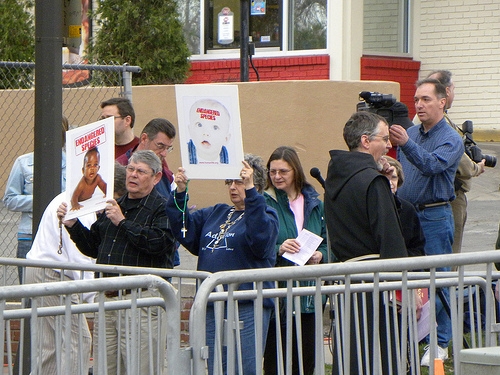
The U.S. Senate blocked a bill to defund Planned Parenthood and channel federal dollars to other health care providers and community health centers that do not perform abortions on Monday.
The bill calling for defunding of Planned Parenthood was introduced by Freshman Senator Joni Ernst, R-Iowa, who ran an anti-abortion campaign last year.
"The American taxpayer should not be asked to fund an organization like Planned Parenthood that has shown a sheer disdain for human dignity and complete disregard for women and their babies,” she said on Monday in a floor speech.
The vote on the bill was 53-46, 7 votes short of the 60 votes required to proceed and for debate to open on the bill. The votes fell mostly along party lines.
Planned Parenthood provides health-care services besides abortion-- like cervical cancer screenings, contraception, testing for sexually transmitted diseases, and birth control counseling-- to approximately 2.7 million women a year at over 700 affiliated health centers across the country. It receives more than $500 million a year in Medicaid reimbursements and $60 million in grants for family planning services. However, U.S. law prohibits the use of federal funds to perform abortions. Donated fetal tissue also cannot be sold for profit.
Planned Parenthood came under intense scrutiny after an anti-abortion group, Center for Medical Progress, released video footage beginning last month of Planned Parenthood executives speaking of selling the tissue of aborted fetuses for profit. Pro-life activists and conservatives assert that the videos serve as evidence that the organization has violated the law. However, the organization denies any wrongdoing.
The Republican-backed bill, S. 1881, proposes “to prohibit Federal funding of Planned Parenthood Federation of America… All funds no longer available to Planned Parenthood will continue to be made available to other eligible entities to provide women’s health care services.”
Supporters of the bill say that the bill would divert money away from Planned Parenthood and to other health care providers-- hospitals, community health centers, state/local health agencies-- to aid the women who rely on Planned Parenthood clinics.
Opponents of the bill contend that the bill would fund facilities that cannot provide adequate healthcare and that it would be difficult to provide service to Planned Parenthood’s 2.7 million clients.
“If this bill went into effect, blocking our health centers from serving patients who rely on publicly funded programs for health care, millions of people would struggle to access quality reproductive health care — period,” said Dawn Laguens, executive vice president of the Planned Parenthood Action Fund, according to the Washington Post.
The release of the videos have prompted investigations by House committees and two states. Though the bill was blocked, further investigation of Planned Parenthood is still in progress.

















